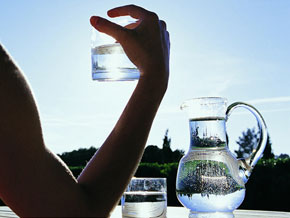Drinking Water Softener
Have you ever heard of soft and hard water? A lot of people probably do not know about these things but knowing the difference between the two is very important and will make a person more knowledgeable about the safety of his or her drinking water. A person cannot survive without water, which makes it a daily necessity, however, if you are drinking the wrong type of water every day, you might be putting your health at risk.
Understanding Hard Water
What is hard water?
- Hard water is water that comes from your tap or the town’s water supply.
- It is called hard because it contains certain amounts of calcium and magnesium.
- Hard water clogs pipes.
- Soaps and detergents cannot easily dissolve in hard water.
- Hard water also causes lime scale deposits in the home’s water system, which can lead to the inefficiency of hot boilers. Because of this, there is a 15% to 20% increase in energy consumption when heating water.
- Lime deposits are also said to damage household appliances like washing machines.
The Importance of a Water Softener
The water softening technique entails the removal of calcium and magnesium ions in the water. Iron ions present in hard water can be removed before the softening process through another method. The best way to soften water is to use a drinking water softener, which you can connect to your home’s water supply. The use of a water softener can remove the negative effects that calcium and magnesium ions can cause.
Softening Drinking Water
Water suppliers soften drinking water before they sell it to customers but they do not always do this. They simply add a water softener in their drinking water system. Furthermore, they do not make enough effort to soften water because it doesn’t pose any problem to them. Hard water is likely to cause problems when it is heated but since only cold water runs through the company’s pipes, they do not prioritize making soft water.
Nonetheless, consumers prefer drinking softened water because it is safer for the body. The natural minerals are not removed so they can still benefit from them. You should invest in a drinking water softener to ensure that you are only drinking the best and safest water out there.
Sodium can also be added to the softened water but it should be limited to 300 mg/L. The salt in your soft drinking water is perfectly safe as long as it is of the right amount. The body can take 2 to 3 teaspoons of salt a day and the salt from your soft water will be very minimal. Why is there sodium in soft water in the first place? It is because salt regenerates resin beads in the water that takes out its hardness.
Your drinking water softener will produce soft water free of iron, calcium, and magnesium. With a drinking water softener, you can enjoy safe and clean water that comes with natural minerals that your body needs.

